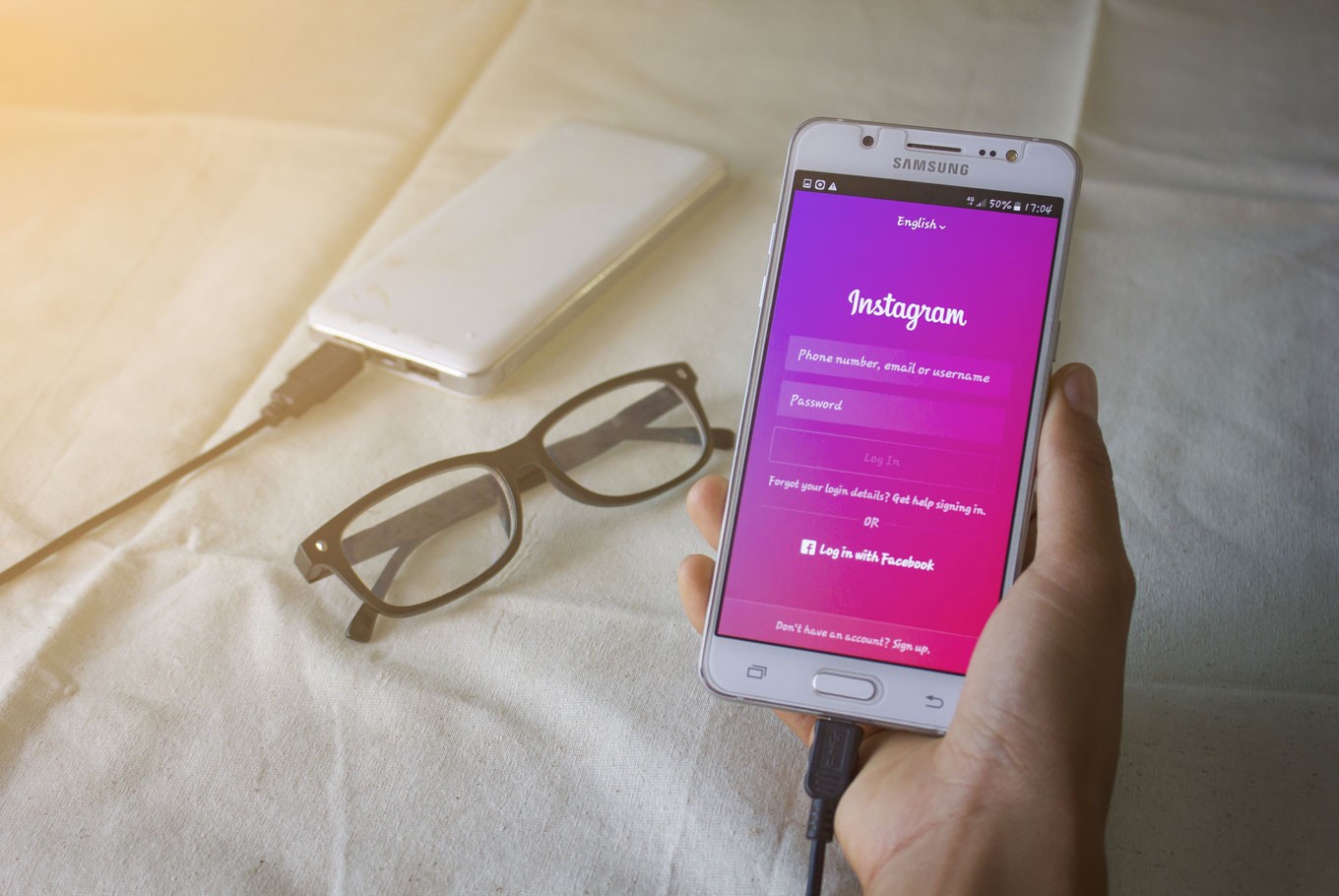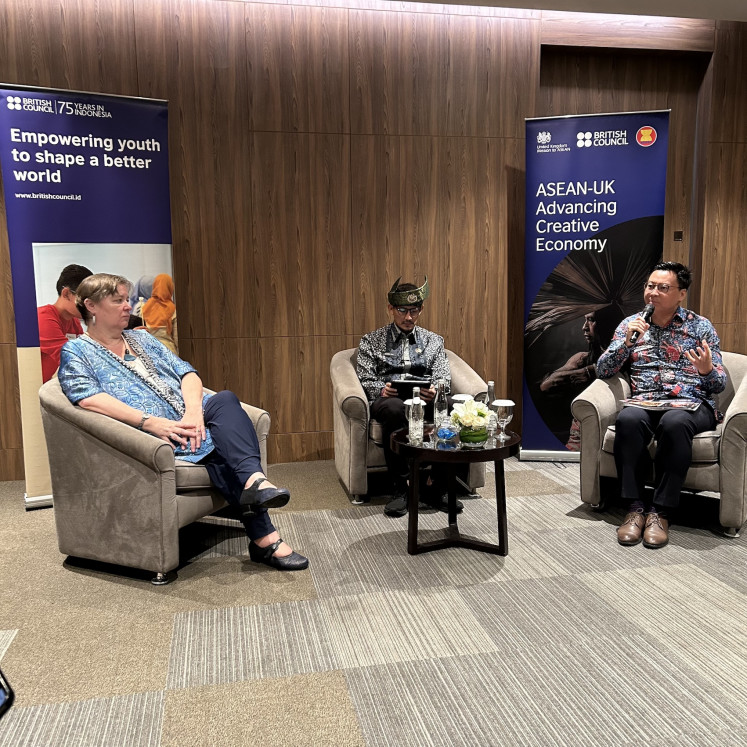Photo-sharing apps more of deceptive lens to the outside world
Lately, young people appear to outstay their welcome in the social media realm. Lets face it: Almost everyone in this era can be categorized as a ‘nomophobic’ or “a person who has a fear of being out of mobile phone contact.”
Change Size
 There are a few people I know who beat themselves up over not getting as many red hearts on their picture. To avoid that experience, they post pictures on Instagram during ‘peak hours’ for the sake of getting more approval. (Shutterstock, Inc./Jakraphong Photography)
There are a few people I know who beat themselves up over not getting as many red hearts on their picture. To avoid that experience, they post pictures on Instagram during ‘peak hours’ for the sake of getting more approval. (Shutterstock, Inc./Jakraphong Photography)
T
hroughout our lives, we keep getting reminded that too much of anything isn’t good. Yet, oftentimes, humans have this bizarre tendency to overindulge in something that’s meant to be consumed in modest amounts. This is something I can vouch for, as I spend most of my time losing sleep over watching TV shows on Netflix, or eating too many fries in one sitting when I go to McDonald’s.
Lately, young people appear to outstay their welcome in the social media realm. Lets face it: Almost everyone in this era can be categorized as a ‘nomophobic’ or “a person who has a fear of being out of mobile phone contact.” For example, when my iPhone’s battery is dying and I don’t have a charger with me, I feel like I am carrying a ticking time bomb that will explode once my phone switches off; and once it does, I feel disconnected from the rest of the world until I revive my device.
But what do we so-called millenials do on our smartphones besides getting sucked into a vortex of infinite posts on our Instagram feed and tapping through Snapchat stories of friends that we’ve met once, two years ago? For 71 percent of us—according to the Pew Research Institute—not much.
Read also: Too many social media platforms may lead to depression, anxiety: Study
It’s something that we are all used to—checking and re-checking each of our social media accounts right before heading to bed, the following morning upon waking up and whenever we get the chance in between. Falling prey to this routine gradually made me realize that social media can be a deceptive lens to the outside world.
Nowadays, it’s so important for people to have a vibrant social media presence that much of their effort goes into maintaining an ‘aesthetic feed’. Convenient crops and filters allow users to reduce their experiences to little square stills to orchestrate the life they want people to think they lead. It seems as though they are giving up some good time in real life to show that they are having a good time on Snapchat or Instagram.
In hindsight, we can barely make it through a simple meal without exclaiming, “Hold on, let me take a picture first!” and then waste another four minutes strategically formatting the dishes on the table, not giving the slightest care about the people around us who just want to eat the food. Other than that, the advent of photo-sharing apps makes it a rarity to enjoy a gathering with friends without someone saying, “Let’s take a selfie!” (which, by the way, is never just one selfie). These are modern day examples of people who unplug from real life in order to document it—because they are convinced that their entire day will go to waste if they don’t post any evidence of it.
The fixation with getting “likes” and posting content that will be well received creates constant competition, where the quantity of likes and followers people have determines their self-esteem. The more followers they can garner to like their #selfie, the better they feel about themselves.
Read also: Men found to crave social media attention more than women: Kaspersky
There are a few people I know who beat themselves up over not getting as many red hearts on their picture. To avoid that experience, they post pictures on Instagram during ‘peak hours’ for the sake of getting more approval. Some even delete posts that have hardly received any likes just moments after uploading them, out of fear that they will come off as unworthy. It is due to this mindset that people set unrealistic social media targets for themselves.
Such obsessive habits spell out a toxic culture of continuous self-assessment, resulting in serious declines of morale. Pakistani-American internet personality reporte and blogger Samia Khan in her TEDx Talk suggests, “This type of virtual comparison leads to feelings of inadequacy, leaving you feeling more pressured.” She highlights that the motivation behind this hyper-positivity and self-inflating behavior on Snapchat and Instagram revolves around the need to be ‘validated’ and ‘celebrated.’
“These affirmations are hugely powerful, because they influence and trigger the pleasure center in our brain—we’ll do anything for that little dose of dopamine,” she explains. Once we attain gratification by uploading positive posts, we yearn for it more and realize that sharing selfies and accomplishments is the best way to get it. But what we fail to understand is, that “what we see is just the tip of the metaphorical iceberg. There are greater, more personal realities looming underneath the surface”, adds Khan.
Technology is a boon and smartphones are exciting tools that have taught and will continue to teach us a great deal. We literally have the whole internet (which basically equates to all that’s important about the world) at the tips of our fingers. But this makes it easier for our phones to turn from useful gizmos into black holes, diverting our attention away from reality and directing it toward a torrent of information about the lives of people we don’t really know.
The photo-sharing apps on your smartphone are not meant to be used as social crutches. Use your phone when you need to do something specific, and put it away when you’re done. Don’t get so caught up in portraying a good life that you forget to actually lead one.
***
Nikita is a 21-year-old Mass Communication Major and a Linguistics Minor in the University of Melbourne. In her past time, she enjoys pressing flowers and cracking a multitude of puns.
---------------
Interested to write for thejakartapost.com? We are looking for information and opinions from experts in a variety of fields or others with appropriate writing skills. The content must be original on the following topics: lifestyle ( beauty, fashion, food ), entertainment, science & technology, health, parenting, social media, travel, and sports.Send your piece to community@jakpost.com. For more information click here.









